Monika Schaefer
The Flipside with Monika
Ep 2 – Alfred Schaefer
Sat, Jul 6, 2024
[In this weekly podcast episode on Republic Broadcasting Network, Canadian nationalist and author, Monika Schaefer has her brother Alfred Schaefer as a guest. He talks about real life stories which become metaphorical for our epic struggle that we find ourselves in. One is an ice-skating story and the other is a sailing story, both of which were life-threatening situations.
Key points include:
1. Monica introduces her brother Alfred as her first guest on her new show.
2. Monica provides background that they grew up in Canada but Alfred now lives in Germany.
3. Alfred tells a story about ice skating on a frozen lake in Germany.
4. A man fell through the ice but was able to pull himself out, becoming hypothermic.
5. Alfred yelled at the man to crawl to safety but he refused due to hypothermia confusion.
6. Eventually the man crawled to Alfred with encouragement.
7. Alfred connects this to people today not understanding real dangers due to indoctrination.
8. Alfred discusses a sailing trip where the rudder failed crossing the Atlantic.
9. The crew had to stabilize the boat without steering.
10. Some boastful crew members complained while others stepped up.
11. The crew neared the Irish coast using teamwork and skills.
12. Alfred believes a similar approach is needed as more people awaken to real problems.
13. He maintains voting will not solve the issues and that hands-on work is required.
– KATANA]
https://www.republicbroadcastingarchives.org/the-flipside-with-monika-july-6-2024/
https://freespeechmonika.com
Published on Sat, Jul 6, 2024
Description
Social media
Share this article
Print this article ✉ Send e-mail
The Flipside with Monika, July 6, 2024
RBN
By RBN
July 6, 2024 20:10
Related Articles
The Flipside with Monika, June 29, 2024 11 29.Jun
Podcast: Play in new window | Download
Subscribe: RSS
Episode 2 of “The Flipside with Monika”
Guest Alfred Schaefer talks about real life stories which become metaphorical for our epic struggle that we find ourselves in. One is an ice-skating story and the other is a sailing story, both of which were life-threatening situations.
Social media
Share this article
Print this article ✉ Send e-mail
RBN
By RBN
July 6, 2024 20:10
Write a comment
2 COMMENTS
_____________
TRANSCRIPT QUALITY = 5 Stars
1 Star — Poor quality with many errors, contains nonsense text 2 Stars — Low quality with many errors, some nonsense text. 3 Stars — Medium quality with some errors. 4 Stars — Good quality with only a few errors. 5 Stars — High quality with few to no errors.
NOTE: Users can help improve the quality of this transcript by putting corrections in the Comment/Leave a Reply section. Thanks.
TRANSCRIPT
(Words: 7,967 – 1:00:00 mins)
[no intro music]
[01:35]
Monika Schaefer: Good evening and good day, everyone. It is Saturday, July 6th, in the year 2024, and the producer is working hard at there was a little technical glitch, and that’s why there’s no music. But I am sure we’ll get that going before the end of the show.
Yeah. My name is Monika Schaefer, and this is episode two of The Flip Side with Monika. And I am very happy to welcome my first guest on this episode, and that would be my brother, Alfred Schaefer! I’m going to give you a little bit of backstory for I’m always hoping that there are new listeners.
And actually, before I do that, I want to make a shout out to a couple of people. One is a shout out to Frederick, that’s aka Blackbird9 of the Saturday Snack Shack fame. Because he’s really been taking me under his wing. It was through his show just over a month ago that I even got this gig here on the Republic Broadcasting Network, and I’m just so grateful for that. And I didn’t really do a proper shout out to him last week, so I’m doing that now. Thank you so much, Frederick, for helping me out and kind of taking me under your wing. Yes, thank you!
And also Mer Bailey. She has a show on Sundays on the Republic Broadcasting Network. The title, which I believe is Yours Truly with Mer, I believe that’s the full title. And she did set up an account for me on Chatango.
So it is the Flipside W Monika.
So the W short for with so The Flip Side with Monika, but the just The Flipside W Monika dot chatango. Chatango.com. And that is a chat room where people can post things or ask questions or make comments, that kind of thing. It’s not very active yet over there because I’ve just begun! And I’m just hearing something in the background, but I think, yeah, we’ll carry on.
So I wanted to take care of those two messages of thanks to Mer for setting up that account.
Okay. So my brother Alfred, just briefly, we all grew up in Canada. So our parents, they immigrated from Germany to Canada in the early 1950s, and they had five children. We are all Canadian. And Alfred is the second eldest. I am the fourth in the family. So the second youngest in the family.
And Alfred, it turns out, reverse migrated in the eighties, in the 1980s. So he’s been living in Germany since several decades. He worked for a while in Canada, saved up enough money to do some traveling, cycling, and whatnot, and ended up staying in Germany.
And so that’s how it came to be that Alfred is living in Germany and I’m living in Canada, but we grew up in Canada together. And that’s kind of an important point because a lot of people have been a bit confused by that, including the judge in our trial! [chuckling]
Okay, so today we’d like to talk about some stories that probably Alfred hasn’t talked about on too many broadcasts before. And these are nice stories from the past, which happen to connect and tie in very nicely with the predicament that we find ourselves in now. One is a sailing story. One is a skating story. So you might wonder what this has to do with the predicament that we find ourselves in. But we’re going to get into that.
But before we do, I just want to say, welcome to The Flip Side with Monika! And welcome to this episode number two. And my first guest, and that is Alfred.
How are you today? In the wee hours of the morning, I might add, because it is the wee hours, Sunday morning for you.
Thank you so much for getting up so early. [chuckling]
Alfred Schaefer: Okay. Yeah. Thanks, Monika, for, first of all, for hosting the show and having me on your show. Yeah. It’s 02:00 am in the morning for me now, but that’s not a problem. This is a 24 hours job for us now to get this right. [chuckling] What’s going on in the world.
Yeah. There’s an event that happened to when I was quite new in Germany, actually.
You know, I think it might have been 1985 or something like that. I don’t remember the exact year.
Monika Schaefer: Are we talking about the sailing event, Alfred?
Alfred Schaefer: No, the ice!
Monika Schaefer: Oh, okay. If you want to start with that’s fine, because that was what then you, … I was going to give a little bit more backstory for why that is important right now.
But, yeah, let’s go with that.
Basically, in the trial, which took place in 2018. And this was a trial in Germany for us, both Alfred and myself. And it just had to do with, you know, Paragraph 130. And that’s the so-called, “Holocaust Denial Law”.
But anyway, Alfred did speak for about a day and a half. The German system, justice system, whatever else you might say about it, though, the one thing remaining that is still good about it is that they do give the accused “the last word”. And you can talk for as long as you want, as long as it is relevant to whatever it is that the charges are against you. And if they, the judge might question on that. Well, if you can demonstrate how it is relevant, then you carry on talking.
And so Alfred did talk for a day and a half at that trial. And he basically wove the whole thing into this tapestry of this story that he’s going to tell you about in a moment. And that is this ice skating story. And the judge did actually question Alfred, like:
“How is this relevant, and how is that relevant?”
And always you were able to bring it back to how it is relevant. And I was actually really moved by that, how you wove this tapestry together with this story.
So with that bit of an introduction to that story, please go ahead and tell what happened there back in, when was it, in the 1980s, when you were pretty new over there? Okay.
[08:42]
Alfred Schaefer: Correct. Yeah. Thanks, Monika, for bringing this additional information. Yeah, this is a story, I find it such a coincidence that this story happened to me. Because it’s helped me so much in helping to understand what’s at stake for us now, basically.
So I’ll just go into the story.
It was in the wintertime, obviously, and Ammersee, which is the lake where I was living at the time, is here near Munich. It had frozen over, which doesn’t happen very often, maybe once every ten years or so. and a snowstorm was set to come in. So I say:
“Well, I’ve got to skate across this lake one last time.”
Because it was just so beautiful, so wonderful! The pure, clear ice. And coming from Canada, of course, young people in Canada generally all skate.
So, anyway, I take off with my skates, go from the Herrsching to the other side in Diessen, it’s probably, I think, maybe 25 minutes or something to cross. I don’t even remember exactly how long it took.
But as I was going across, the snow was starting to set in stronger and stronger. And I get to the other side. There was some ice hockey players there and so forth.
So I just basically touched the other shore and headed back. And the snowstorm was increasing rapidly. Until the vision was basically like in a fog. I couldn’t see much at all anymore, but I could still maintain direction. That wasn’t the problem. Then suddenly I saw this. It looked like a seal laying on the ice. And I said:
“What the hell is that? A seal on the ice?”
So I went in that direction. And then suddenly, an arm! The seal raised an arm, and I could hear a help cry:
“Hilfe! Hilfe!”
And I said:
“Holy smokes. What’s this here? There’s a guy laying there on the ice. What’s he doing there?”
And then I reduced my speed, because I was skating, I reduced my speed. And then I heard the ice starting to make cracking sounds underneath my feet. So I instantly go down on all fours to spread my weight a little bit. And I started communicating with him, and I asked him:
“Hey, what’s wrong? What’s the problem?”
And he says:
“Well, I broke in. I broke in!”
But he wasn’t in the ice. He was laying on top of the ice.
And then through this continuing dialogue, he told me, yeah, he had broken in, and he managed to crawl out onto the ice, which is a major feat! Normally when somebody breaks into the ice and doesn’t have a pick or something as some kind of a tool to pick his way out of the ice.
Monika Schaefer: Like to anchor.
Alfred Schaefer: Yeah, like an anchor, right. It’s very hard, and very few people could do it. But this guy was obviously very athletic. He was fairly young, you know, healthy, athletic. And he managed to pull himself out of the ice. He wasn’t on skates. He was walking on foot. But he had these, at that time, these Walkmans were kind of in mode kind of thing, and he wasn’t paying attention to the sounds around him. And he broke in.
But he did manage to get out, and here he was. Had managed to get himself out of the life threatening situation that he had suddenly found himself in, namely, broken through the ice. Managed to get out, and then he started to. He was shocked, I guess it was, …
Monika Schaefer: Hypothermic, you could say. He must have been hypothermic. And you don’t think clearly anymore.
Alfred Schaefer: Exactly! Exactly! That’s exactly what happened. Hypothermia was setting in, and he thought it was more important to get his hands warmed up than to just start moving and get away from the hole where he had broken into.
And so I says:
“Hey, well, come on, come to me. I cannot come to you! You’ve got to move. Crawl! Crawl on all fours towards me, or on your belly. Crawl over to me. I cannot come to you!”
And of course, that was way before we had cell phones or anything like that.
And for me to go and get help would have been also his end, because the snow was setting in, and it was a pure coincidence that I happened to see him on my way back across the lake.
If I would have left him to go get help, we’d never find him again. And time is life or death in a situation like this.
And no matter how much I tried to convince him:
“Hey, your hands are not important. Just start moving towards me!”
He refused! He just says:
“No, I have to warm my hands. My hands are cold!”
And he’s laying on his belly there, rubbing his hands, thinking that’s important. His mind had., … It was like he did not understand! He could not reason anymore. And no matter how much I screamed at him, his hands were more important. And he just laid there.
And finally I got more fierce and more ferocious until he finally, I guess, finally I did make an impression on him. And after considerable screaming and yelling and insulting him and whatnot, he did start crawling towards me.
[14:24]
Now, all this yelling and screaming was not because I was angry with him. No! It was simply because I understood. Growing up in Canada, one learns the effects of hypothermia, and why when you’re getting cold and you’re hiking or something, you are not supposed to sit down and think, you can rest. You have to keep moving until you can actually find something where you can to warm up somehow. Because what if you sit down in the snow because you’re tired, that’s the last time you ever sit down, and you will die in that position.
And this guy was in a found himself in a position where he had actually managed to get with his own self, get himself out of the water.
And yet the hypothermia put him in a state of mind where he did not understand the next steps that he needs to follow through with to ensure that he survived.
And this is very much akin to what we collectively find ourselves in today in our world with what’s going on in our indoctrinated state of mind! We have been indoctrinated all our lives to the point where now the zombies, if you will, who still, who believe these lies, they are no longer capable of making the decisions that will save their lives!
And I mean, like fear from Corona snakes and getting a bioweapon vaccine, I mean, how many people has that already killed? And how many people will be dying and are dying every single day now because they listen to this nonsense and allowed themselves to be injected with a bio weapon.
Monika Schaefer: So Alfred, yeah, that’s fantastic!
And just before you carry on with that the analogy to today’s zombies basically not making the right decisions for their lives. I’m sure that the listeners are very curious how it actually ended with this guy. [chuckling] You just got to complete the story!
Alfred Schaefer: Yeah. Okay.
Fnally, he was more afraid of my screaming at him than he was concerned about his poor cold hands. [chuckling] And he did start moving towards me. And then finally, as soon as he made his first little move, I was just elated:
“Okay, he’s coming! He’s coming!”
So I kept yelling and yelling and yelling until he got close enough to me. And then we backed away from the area where he was. And then I got up, and I helped him get on his feet, and then I walked with him. I was on my skates. He was just on his feet. And we headed towards the shore where these ice hockey skaters were.
After his first steps, he could see, he’s getting better. He’s getting better. He can do this! We’re going to make it!
And then when I got in sight of the shore, I say:
“Okay, you see those people over there? I’m going to go over there and tell them that you are on the way to join them. You need to get into a warm place and so forth.”
So I scooted ahead, told those people:
“You see that guy out there? He’s coming in your direction. He was in the ice. He needs help. He has to go into a warm place.”
He was saved with them.
Monika Schaefer: The reason you did that. I know that you had told us at the time it was getting dark. You needed to get yourself back across the ice, and the snowstorm was just getting bigger and bigger. Isn’t that the way it was, Alfred?
[Image: Monika skating safely in Canada]
Alfred Schaefer: Yeah. Yes. And my whole concern there was this, because the snow was just getting more and more intense. I wanted to get myself back to the other shore. And seldom in my life did I feel such intense fear! Every time there was any kind of sounds that were like. Because this was this was in my bones now!
Monika Schaefer: Oh yeah!
Alfred Schaefer: Like, I just strided back to the other side, …
Monika Schaefer: And to avoid that fall. And here you are in the snowstorm. I can imagine that would have been spooky. And I do know from a lot of experience of ice skating on lakes, I call it “wild skating”. It’s one of my passions. I just love it! And I seek every opportunity to do. So but if somebody hasn’t done this before, and if they’re with me, they freak out at every little “ping, pong”. You know, you hear these sounds when the ice is making sort of these distance, distant, like, cracks form. That’s just a natural thing, even if the ice is thick. And there’s these “pings”! You know, and it’s a lot of fun, but in your state there. Yes. And it’s getting dark. I can only hardly imagine, actually, how frightening that would have been. Carry on. Thank you.
[Image: Monika avoiding becoming a seal, …]
Alfred Schaefer: Yeah, but this experience of having., … But just the only thing I physically did for this man who had broken in the ice was “words”. Yelling at him! Screaming at him! I did nothing else for him. He did it all for himself. And that’s what we have to do now. We have to reach our people who are just refusing to open their eyes! Refusing to want to grasp what is going on, but they do need to be reached!
And then, with their own strength, with their own resolve and power, we will save ourselves from this death matrix under which we are presently suffocating!
And, I mean, I noticed you and I, Monika, we were indoctrinated just like everybody else was.
Monika Schaefer: Certainly were! [chuckling]
Alfred Schaefer: And we’ve come out of it, and coming out was a very traumatizing process.
Monika Schaefer: Oh, yeah!
[20:13]
Alfred Schaefer: And these people who have not yet made the first step, they will all be needing incredible help and care when they do come out of this matrix. Because you change in your entire being once you detoxify, you know, decontaminate yourself from these horrible poisons, these toxins of these lies!
And that’s the process we’re seeing now in full steam, in full force. It’s really going fast now.
But this experience proved to me that it is possible. And without that, having had that experience, I don’t know if I would have had the perseverance to keep going in the struggle that we’re in now. But having experienced that, I know it is possible. It is possible!
And I’m seeing signs of every time I meet somebody who understands everything, I’m just elated because:
“There’s another one! Another one who understands!”
And so forth. And now our numbers are growing very rapidly, Monika.
Monika Schaefer: Oh, that’s fantastic! And I will just reiterate how you wove that into your “last word” as you were basically discussing our situation that we find ourselves and always bringing it back to that. And, it’s related also to this old saying about “don’t shoot the messenger”. You know, in this case, yeah, you had to really scream and yell at that guy. And you finally did get through to him in spite of his hypothermic state of mind and just how you must have just really had to scream and probably use some words that we can’t repeat on the radio here today, to just get through.
And then he did save his life with his own effort. Well, you did save his life. You really did! Because like you said earlier, I mean, if you hadn’t have just happened to come along, he would have sunk deeper into that hypothermic state. And when a person does go into that state, they actually do enter a pleasant state where they hallucinate.
I mean, there are lots of people who have, you know, been rescued from the hypothermic state where they will tell afterwards:
“Yeah, they were enjoying themselves!”
And people who are in a snowbank at 30 below, they’ll take off their jacket and mitts because they’re feeling really warm and toasty and enjoying themselves!
But that also compares to our current state, doesn’t it, Alfred? Because people are just going around just thinking everything is tickety boo. Perhaps some of the members of our own family are in that category. [chuckling] We don’t have to mention their names or anything. But yeah, but yet, okay, … When we’re bringing our message! Yeah, that’s what we’re trying to do, is rattle people awake. And go ahead. You have something you want to add to that?
Alfred Schaefer: What I had mentioned a few times during our court trial was that this is as if that guy who I had saved, whose life I had saved, just by screaming at him about getting him to understand the reality, as if he would come to me now, years later, and accuse me of not being polite enough!:
“Oh, you weren’t nice enough. You weren’t politically correct enough. You called me bad names and you hurt my feelings with those bad names.”
This is a life and death struggle that we are in. And everybody will, at some point in time, many will know it as they die:
“Oh. Oh! That was a mistake!”
But others are waking up. More and more are waking up. And this isn’t about being nice and being polite and so forth. This is about flying a flight path, or a course that where we don’t crash into the mountain, kind of thing. It should never have come to this point as we find ourselves now. That’s how it is.
And thank God, Monika! Thank God, that we are now seeing in this death matrix the typical last phase is when they make laws against naming the problem! And that’s always the last state, because then they just go into a panic kind of thing. And that’s what we’re seeing these days.
So now is a good time for everybody just to understand what’s going on and go full force! Completely ignoring any blots of toner or laws that they may have, telling us what we are allowed to say and not allowed to say. These people have no right to tell us what we are not allowed to say, as they are trying to kill us!
Monika Schaefer: Exactly! Exactly! If anybody thinks that they even have the right, or who would even dream of thinking that they can make a law to put our history into existence in a certain way. Does that even make sense? Or making a law that you’re not allowed to dislike a certain group of people or name a certain group of people, or just point out simple facts about that certain group of people? Well, if they need to make laws against that, then we know that there’s a problem with that certain group of people! It just is so obvious!
And I guess, we just have to carry on trying to wake people up to these very simple things! I do have a hard time sometimes to fathom that it is not becoming quite apparent to everybody. But the spell, the spell is so deep and so big that has been cast on our people and through words. Through word magic, really, even just the word “spell”, that also means to spell a word, like spelling. You know, we all participated in spelling bees in grade school, so to spell a word, but it also means this thing that is like casting a spell, like magic! Isn’t that interesting? Oh, there’s so many words when you study the language and how they have these multiple meanings, that they actually tell us things.
[26:32]
And while I’m thinking of this word magic, here’s an interesting one. It’s different from our topics here, Alfred, but I just am thinking of it, so I’m going to throw it out there. Think of the word “Aboriginal”, because lately I’ve been talking and thinking a lot about in Canada we’ve got this, these stories being concocted about the graves and mass graves and whatnot. And it’s very similar to the stories they concocted about World War Two and the so-called “Holocaust”.
And we’re getting our own “holocaust” set being set up right now as I speak. But think of the word “Aboriginal”. This is how they call the indigenous peoples of North America. Also in Australia, I know they use the word Aboriginal. Okay, think of the word “normal” and “abnormal”. Now think of the word “original” and “Aboriginal”. I’ll leave it at that they tell us things with the words! A dear friend of mine just pointed that out to me, so a shout out to him.
Okay, so, Alfred, there is another story that I would like you to tell the listeners, and that is when you were, … You had done quite a few sailing trips, and you could give a little bit of background about that beautiful old schooner that you had the privilege of getting onto. And I know we’re coming close to the bottom of the hour, and I’m not sure if the producer has sorted out the music.
[Image: Alfred pondering rudder design, …]
So if we hear that break well, … We’ve got a couple of minutes so we can get the story started and then continue after the break. But tell a little bit of background about the schooner, because I think that’s such a neat story.
And then about your sailing trip and where you found yourself in the middle of the Atlantic without a rudder [chuckling] and what happened next.
Alfred Schaefer: Yeah. Before I start that story, I just want to say thank you for talking about this spell that we are under.
Red Ice Radio: Nicholas Kollerstrom — TRANSCRIPT
And I remember Nick Kollerstrom, and he had written that book, Breaking the Spell, and it was about the Holocaust, the “hollow hoax”. And I find that’s a very good way of looking at these things because it is a spell! It’s a spell like somebody has a magic wand and can get you paralyzed with that with abracadabra! Saying a few words and down you’re on your knees. That’s what these things are like, the Holocaust spell.
Monika Schaefer: Yeah!
Alfred Schaefer: And setting up these. And teaching our children these things in schools. That is actually a “mind rape”, is what that is.
Monika Schaefer: It is.
Alfred Schaefer: And it’s an absolute mind rape.
Monika Schaefer: And back to your skating. And the guy who pulled himself out of the ice water there, the hypothermic state that he was in, it’s a different kind of a mind. It’s not a spell, but it put him also into a state of mind where he could not think clearly.
So that was a very, very good analogy and a good story.
Alfred Schaefer: Yeah. It’s like an anesthesia to the mind. It’s like a lobotomy. You are these people. It’s like a runner who has a broken leg. He cannot run as he could if his legs were healthy.
Monika Schaefer: Whoops! I think we’re up at the break now.
Alfred Schaefer: Okay. We’re into the break.
Monika Schaefer: Without the music! We’ll get that sorted out for next week because we did have bumper music. Nice, classic music. But okay, here we go.
Alfred Schaefer: Here we go. Okay.
Monika Schaefer: Oh, good. There it is.
[music break]
[commercial break]
[music break]
[37:28]
Monika Schaefer: Welcome back to The Flip Side with Monika. And thank you so much, Mr Producer, for getting that music going. That is just such a beautiful piece.
So, Alfred, before you get into this sailing story, we had another very short story, but it gives me the opportunity to highlight and mention and give a shout out to the absolutely critical and fantastic work that Professor Robert Faurisson did over the course of about four decades. He worked incredibly hard at putting, pulling together, investigating evidence, actual physical evidence, topographical evidence, documentary evidence, all these different kinds of evidence at Auschwitz, predominantly, I think, and to basically refute the mainstream story that we’ve been told about what happened at Auschwitz.
But anyway, I missed out on the great pleasure of meeting him. I never met him in person. But you did, Alfred.
So why don’t you just share this little short story? Because it does demonstrate that in all the serious, … And he was a man who was. What did he say? Something about “attention to details”. He said it a little bit differently. Maybe you remember exactly the words he used. Always attention to details.
But he also had a wonderful sense of humor, I think, because this story kind of does show that. Go ahead, Alfred.
Jim Rizoli Interviews Prof Robert Faurisson, Oct 2015 — TRANSCRIPT
Alfred Schaefer: Yeah, yeah. That was a Professor Robert Faurisson. And the amazing thing is that he persevered for so many, like so early on he understood somehow where these lies were heading, where in our minds they were just, we didn’t even take them seriously. But he knew. No, no, this has to be taken seriously. And he was completely and totally uncompromising when it’s came to the details of the truth! You know, no compromising on that. And he always said:
“With the Holocaust, you’ve got to start with the gas. And there was no gas for any human beings! For like, that was a complete fabrication and absolute total fabrication!”
And so forth.
Of course we know that.
But anyway, I want to tell you, I was so lucky, so fortunate to be in a little group that went and visited him in Vichy on his 88th birthday in France there. And there’s quite a number of people there.
And when I got to sort of in the line to shake his hand and say hello to him, he was sitting in his chair there. And I says:
“Yeah, hi, I’m Alfred Schaefer.”
He looks up at me, says:
“Who’s Alfred Schaefer? I don’t know Alfred Schaefer.”
And I [chuckling] said:
“Well, I’m Monika’s brother.”
And with my arm, I pretended I was holding a violin and, like, playing a violin. And he instantly recognized who I’m talking about! And he jumped up from his chair and just gave me a huge hug! Like a real bear hug. A big hug! And he says:
“This hug is not for you! It’s for your sister Monika! I give this hug to your sister, Monika!”
And of course, I’ll never forget that. So I gave you that hug back several times.
Monika Schaefer: It was in court. In court! It actually in the courtroom is where you passed on. No?
Alfred Schaefer: Oh, yeah. There. Yeah. Yes, it was!
Monika Schaefer: Because this birthday party, I think it took place while I was in prison [chuckling] or somewhere around that time. No? But I think you’re exaggerating that he did know who you were. And you’re very humble, Alfred, to tell it as if he didn’t know who you were. [chuckling] Because it’s not how I heard it last time. I think he jumped up and just gave you the hug and then said:
“It was not for you, but for your sister!”
But anyway, you’re being very humble there that to say he didn’t know you, [chuckling] but I wasn’t there, so maybe that’s how it went. [chuckling]
Alfred Schaefer: Yeah. Because it’s like he meets a lot of people and so he can’t know everybody.
But then at that time, Monika, that piece
, Sorry Mom, I was Wrong About the Holocaust. It really hit a chord! It was unique! We never had anything like that before. And that’s a what brought this enthusiasm and joy to people was to see such a simple message, and it just sticks in their minds.
Basically. This five minute video, Monika, undid hundreds of millions of dollars worth of indoctrination that they had spent and invested to get us believing all this utter nonsense! It was so powerful, Monika! So innocent and so beautiful! So that was a piece of history! So that’s, you know. Yeah.
Monika Schaefer: Well, that’s real nice. Thanks, Alfred.
Okay, so let’s get on to the sailing story. Tell us about that!
Alfred Schaefer: Yeah. Through a chain reaction of coincidences, or whatever you want to call it. I was a crew member on an old sailing schooner, as a yacht, or whatever you want to call it was a built as a ship, an old wooden boat built in 1937, I think it was.
And the first time that we sailed this thing across the Atlantic, the North Atlantic, was in 2003. It was the Daimler Chrysler North Atlantic Challenge. And we were actually overstaffed, if you will, on this boat. Normally it’d be eight people on this boat, and we had, I think about eleven or something like that.
And anyway, the day after, our navigator said:
“Hey, listen, as we’re halfway from Newport, Rhode Island, Newport, halfway to Ireland, because it was going to go over the north of the UK kind of thing and so forth, halfway between Newport and Ireland and equally far to Greenland or Iceland.”
And that night, it was the other watch, the other shift kind of thing that was at the helm. Then the skipper went through the boat and he says:
“We have a rudder failure. Rudder failure!”
And I’ll never forget that, because we had a mechanical rudder failure, meaning that we couldn’t steer anymore with the steering wheel. And from an instant., … Oh, do we have music coming in? Okay.
Monika Schaefer: Yeah, I’m not sure. I wasn’t thinking that we had another break. I’m thinking we keep going.
Alfred Schaefer: Okay, we’ll keep going, I guess.
Monika Schaefer: Yeah.
Alfred Schaefer: Anyway, from an instant, our entire being or existence on this ship went from getting the sails, always having the sails in perfect trim, and the course like, go, go, go! Like, it’s a race, like a regatta. It went from that mode into a mode of:
“Holy smokes! This is survival now!”
Like, we’re in danger of sinking if something happened, like, things could happen that would have us sink!
But this was a long keel boat, and the skipper and the people who understand this know that in a long keel boat, if you can get it pointed in the right direction and get the sail set properly, you can actually keep it on course without the rudder. You know, you can stabilize it somehow, but you don’t need it to keep your direction going.
And anyway, what happened, though, in this scenario, like, it took several days before we got the ship in a stabilized direction and going, you know, heading towards Ireland kind of thing. But with the people that were the loudmouths before, we thought they were the heroes and so forth and were on top of the world, there was a couple like that in that crew. And they were the ones who were the whining little wimps after this paradigm change! Which is what it is when you go from racing mode into survival mode.
And another group of people were the ones who would stay calm and just figure out:
“What do we do? What actions do we need to take?”
And then another group. So it was like three groups, basically.
Another group basically stayed below deck and stayed out of the way, were not a problem, but they just kind of went into their corners and kind of hid there.
Monika Schaefer: Basically stay out of the way, but not whimper and whine, …
Alfred Schaefer: Eaxtly!
Monika Schaefer: But available if needed, I guess. Right?
[46:38]
Alfred Schaefer: Yes, correct, correct! And my own role was basically, there was a couple guys that the skipper had hired, like professional sailors who had lots of experience and so forth. And I was neither the navigator nor was I the expert. But they always:
“Schaefer, come on, get up here! We’re gonna do this with that!”
Like, I was always there like holding stuff or doing this and doing that.
And this is a situation that we are facing now with this paradigm change that we are in at the beginning of right now, where we are dismantling the death matrix. And we’re going to come out of that understanding what the facts are, the truth of the matter is, and what needs to be done to reconquer our old civilization, like get control over our civilization again. This is what’s inevitable! We either do it or we die! This is one of the same situation as on that boat.
And those people who are now the big mouths on TV every day telling us this and telling us that, you will see them hiding. They will be hiding in the cracks! Because if anybody catches them someplace, they probably won’t survive. You know, if they walk down the street and somebody recognizes them and they happen to have a pitchfork in their hand, they’re going to get the feel the pointy end of that pitchfork real fast. I mean, it is so obnoxious what they are doing to us. And they will disappear. And the people that will be running and driving things are people that we don’t even necessarily know of, or have ever seen yet, but they will come out of this mass of people who are waking up and so forth.
So that’s also an experience that I had that clearly shows me what we can expect in the immediate future, if you want to call it that.
Monika Schaefer: Yeah, I just think it’s so interesting. I remember you describing that a few years ago when you described that scenario where, like you say, it’s a paradigm shift, complete and utter paradigm shift, from just going along racing mode, everything’s good, and then to survival mode.
And then these three groups that emerge from the crew that you have that nobody foresaw that, they emerge, and you get your natural. Okay, the people who step up to the plate and they just get into action. And like you say, these people in our current situation, like, sometimes people are looking for a leader, and often it’s a matter of, okay, maybe just look in the mirror. You might find one there! [chuckling] But it can be surprising where, you know how people then react or where they’re going. And like you were saying that the ones that were kind of the, I don’t know where they boasting and bragging or just loud mouth people, and they go whining and whimpering and say:
“Oh, we got a call for help!”
Or they, weren’t they the first that called for they wanted you to all do the SOS call. Right?
Alfred Schaefer: Yes!
Monika Schaefer: Maybe you can continue with the story, because again, people are going to be wanting to know how it all ended! [chuckling] You didn’t crack! We know that!
Alfred Schaefer: Yeah. At the end, we did make it to the Irish coast. And then when we were really close to the shore, then we radio to have a, the Coast Guard come in and tow us into this secure port because you can’t maneuver.
Monika Schaefer: Tell us how you did that. How did it go? Because you were rudderless and you were kind of floating like a cork, right?
Alfred Schaefer: Yeah, exactly! And we secured what was left of the rudder so that it would not get torn off, which could have created a hole in the Hull and then you’d have, …
Monika Schaefer: Well one of these fellows, the young strong guy, didn’t he kind of hang upside down and he, like, literally, … Off in the water? [chuckling] I mean, incredible, right?
Alfred Schaefer: Yeah. I won’t get into all the details of how we actually did that because that’s a story for itself. But, yeah, yeah, we had a couple of very competent people there.
But the interesting thing was these boasters, these bragger types who:
“Oh, I was here! I was there!”
They’re always bragging about how, you know what heroes they are. And these were the ones that were just whining and telling the skipper:
“He’s going to do an SOS! We got to get help!”
And so forth.
But if you have an SOS call out at seat on a boat like that and those people who come to get you, also get to keep your boat, you know, these are the “laws of the sea” sort of thing! [chuckling] So we managed with our own strength, with our own ingenuity to stabilize the boat, to get it on our own power sort of thing., …
Monika Schaefer: Like hobble. Basically, the analogy would be to hobble in. To hobble in, …
Alfred Schaefer: Yes, correct. We crawled or hobbled into port kind of thing. Yeah, that worked out very well.
But it was so interesting to see how those people who portrayed themselves as being the big heroes were actually whining wimps when suddenly the narrative changed! The paradigm shift happened!
And we will be seeing that here, too. See, we’ve been led to believe that life consists of buying shiny, nice little toys and things and so forth. And the more shiny toys you have, the more you are seen as being a successful person.
And yet the death matrix under which we are now being suffocated is our absolute certain death for all of us! Life does not consist of having a thing called money to buy toys. We have to think about where this is taking us. Having no borders. Everybody who has thinks it’s nicer to be in Germany or Canada or United States than a slum in Lagos or Calcutta.
[52:40]
Of course, we are an attractive place to go because we have everything, but that is artificial. Normally, all the stuff that we have, our infrastructure was not intended for those people who are poor in one of these teeming slums in the third world or something. We will turn into a steaming slum if this trajectory is allowed to continue. That’s what our situation is right now. Just like when our rudder failed, we had to do certain things. We did those certain things, and then we could continue our path, or we had a trajectory that took us to the coast safely. That’s what we have to do now. We have got to find a trajectory that will secure our future.
And right now, we are like in an airplane with a pilot who’s drunk. We’re heading to a mountain range. And if we continue on this flight path, we will all die! That’s our situation now.
But because people are waking up in droves, we will muster the strength and energy that we need to get this right!
But everybody has to understand. Just like that guy on the ice who didn’t understand his predicament, in the end, he did understand, and he did actually save himself with his own strength.
The only thing he got from me was screaming and shouting and orders. That’s all!
Monika Schaefer: You know, both of these stories actually are, they have parallels in that you know, the guy who was hypothermic, he did save himself. I mean, with your screaming and yelling obviously, but he did with his own strength, actually move.
And then in the sailing story, you all say you brought yourselves within reach of the shore where, yeah, I realize you just got the last bit, you got towed, but basically you were there, you hobbled in yourself. You rescued yourself. You rescued yourself!
So this, I think that’s really important for people to understand. Like, if people are still thinking:
“Oh, well, let’s vote harder and get ourselves out of the predicament!”
Nah! I don’t think that’s going to happen. You know, voting harder isn’t going to be the solution with this system we’ve got. No, this whole thing, it’s, …
Alfred Schaefer: Yes, there’s no voting our way out of this predicament! And we will come out of this predicament, but it’s going to be by rolling up our sleeves and doing what needs to be done!
And once we have understood what the facts are, what the reality is, and who it was who has brought us into the situation, then we will get the job done! Those people who, through treason, through utter treason and lies, brought this situation will no longer be at the helm! They will be dealt with. But they will probably find themselves behind bars, if they’re lucky, or dead, if they’re a little bit less lucky.
This has happened many times in history. This kind of a false trajectory, a trajectory to death. And we will, through our life, generally, does invest everything it can to rectify the situation. And what we are seeing now is a typical healing process. Any organizm, before it begins to heal, it understands what the problem is, and that is the point at which it starts to heal. After it understands! Your individual cells in your body, if you have a cut or something, it’s only after they understand your individual cells what the problem is, that they start to do the right thing to get the cut fixed kind of thing. And that’s what we’re seeing.
Now, we are all beginning to see what the problem is. It’s called a jew problem. You can call it that. And yet often some of our best fighters are actually jews, because they come out of this, they understand their bad instructions that are leading them to do what they do, and that makes them good people to help us get out of the situation.
So this is its all hands on deck right now! And we’re going to get this done, and we’re going to get it right!
Monika Schaefer: Yes, indeed! All hands on deck! And, Alfred, we’re almost out of time.
Actually, we’re pretty much within a minute of the top.
And I just want to thank you so much for those stories and for staying up so late or getting up so early, whichever way you want to look at it!
And I want to thank everyone for tuning in and listening. And please do support the Republic Broadcasting Network. I have heard many other hosts say that, and I am a new host here, and so I should say it, too. This is a cutting edge broadcasting, and we can tell you the truth about things. And I do hear the music coming in, and so I will say goodbye until next week. Thank you so very much. All right. Bye bye.
[58:06]
[music]
[58:50]
[ad]
[1; 00:00]
END
============================================
RBN Comments
(Comments as of 7/10/2024 = 2)
Adam Deiulio
July 7, 18:17
What a great show thanks Monika and Alfred
Reply to this comment
Monika
July 8, 10:54
Thank you so much for tuning in, Adam!
Reply to this comment
==========================
See Also
Monika Schaefer – The Flipside with Monika – Ep 1 – Intro – Jun 29, 2024 – Transcript
The Flipside with Monika – Ep 2 – Jul 6, 2024 – Transcript
The Flipside with Monika – Ep 03 with Paul Fromm – Jul 13, 2024 – Transcript
The Flipside with Monika – Ep 08 with Alfred Schaefer – Aug 17, 2024 – Transcript
Joel Davis – Mark Collett vs Greg Johnson – The Ukraine Debate – Oct 17, 2022 – Transcript
Mark Collett – Patriotic Weekly Review – with Joel Davis – Apr 27, 2023 – Transcript
Joel Davis – On Australian Nationalism with Matthew Grant – Dec 17, 2022 – Transcript
Joel Davis – The White Australia Policy with Matthew Grant – Jul 27, 2023 – Transcript
Joel Davis – The Vibe Has Shifted and the Paradigm is Shifting – Jun 13, 2024 – Transcript
Slightly Offensive – Is America (& the West) Over? – Guest – Joel Davis – May 31, 2024 – Transcript
Joel Davis – Polarisation Phases – with Blair & Tom – Jun 20, 2024 – Transcript
Mark Collett — It’s Okay To Be White — TRANSCRIPT
Mark Collett — Christmas Adverts – Multicultural Propaganda — TRANSCRIPT
Mark Collett — What We Must Do To Win — TRANSCRIPT
Mark Collett — Assad Didn’t Do It – Faked Syrian Gas Attack — TRANSCRIPT
Mark Collett — The Plot to Flood Europe with 200 Million Africans — TRANSCRIPT
Mark Collett — The jewish Question Explained in Four Minutes — TRANSCRIPT
Mark Collett at The Scandza Forum, Copenhagen – Oct 12, 2019 — Transcript
Patriotic Weekly Review – with Blair Cottrell – Dec 4, 2019 — TRANSCRIPT
Dangerfield – Talking Tough with Mark Collett – Mar 28, 2020 — Transcript
Mark Collett – Sam Melia Sentencing – with Laura Towler – Mar 1, 2024 – Transcript
Joe Marsh – Sam Melia Going into Court Before He was Sentenced – Mar 1, 2024 – Transcript
911 – The Jews Had Me Fooled: A Jewish Engineered Pearl Harbor
Organized jewry Did 9/11 — The 16th Anniversary, 2017
Know More News — Christopher Bollyn, The Man Who Solved 9/11 — TRANSCRIPT
The Realist Report with Christopher Bollyn – Sep 2018 — TRANSCRIPT
Guns and Butter interviews Christopher Bollyn — The War on Terror – Dec 18, 2019 — Transcript
AE911Truth – Exposing Those Who Covered up the Crime of the Century – May 28, 2023 – Transcript
============================================
PDF Download
Total words in transcript = 7,967
- Total words in post = 8,662
- Total images = xx
- Total A4 pages = xxx
Use your browser to download/export a PDF of this post.
Version History
Version 5:
Version 4:
Version 3:
Version 2: Thu, Jul 1, 2024 — A couple of correction from Monika. Added more images.
Version 1: Wed, Jul 10, 2024 — Published post. Includes RBN comments (2).



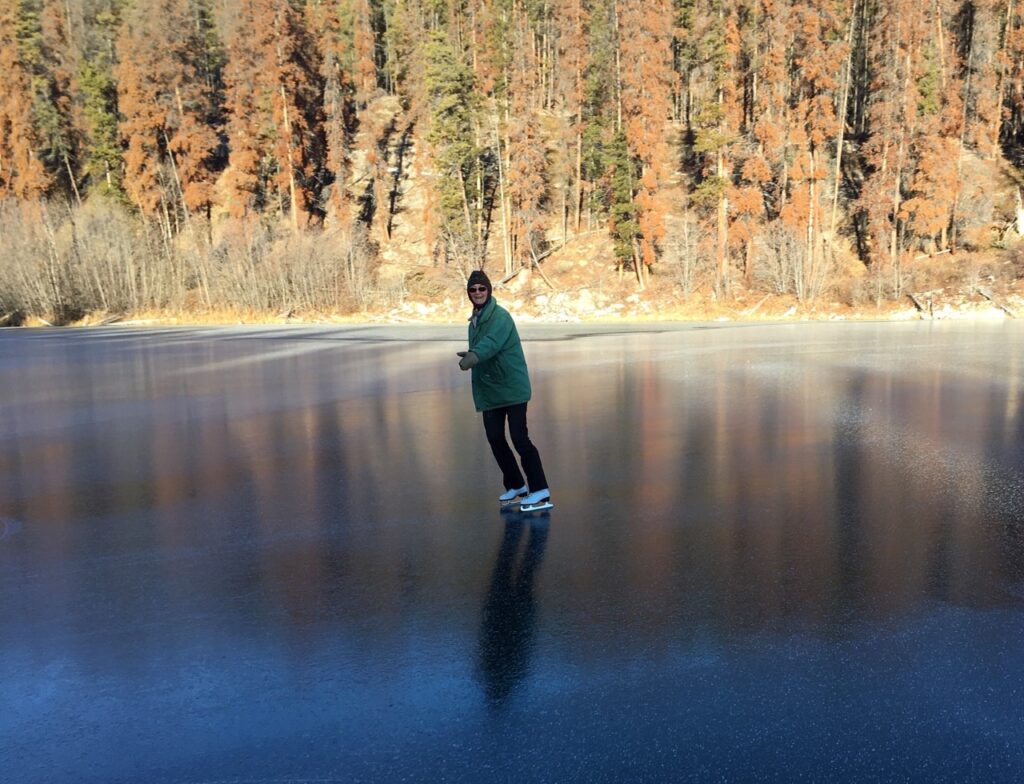
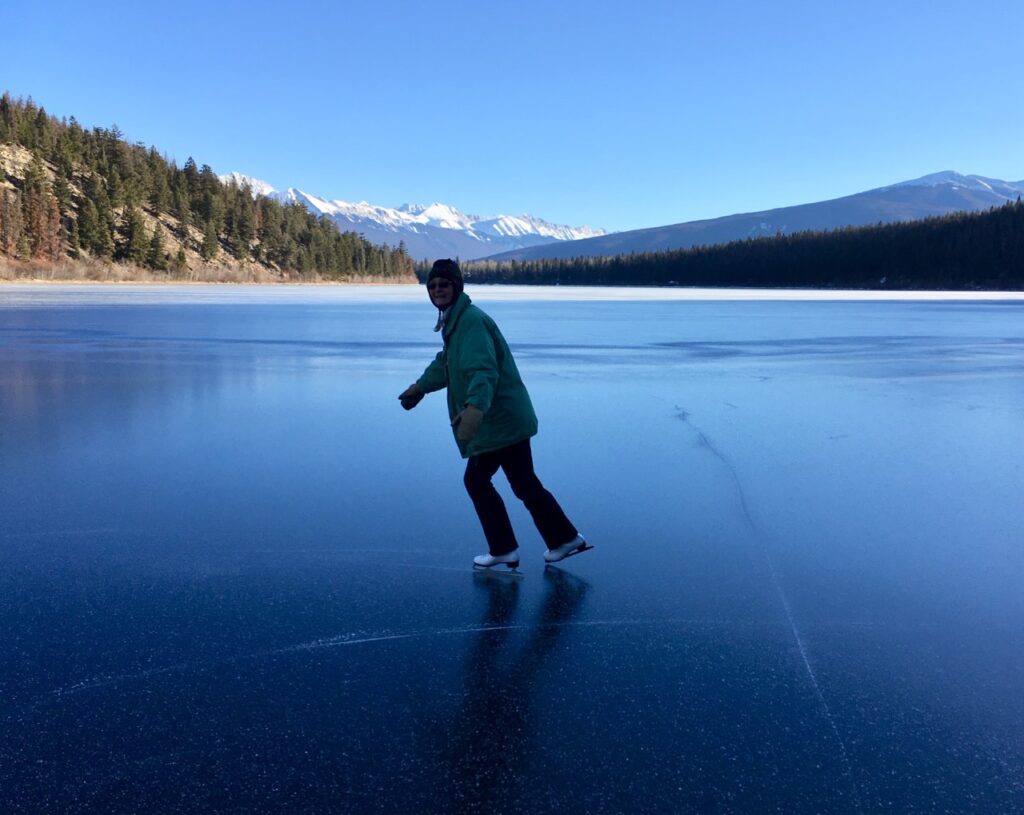
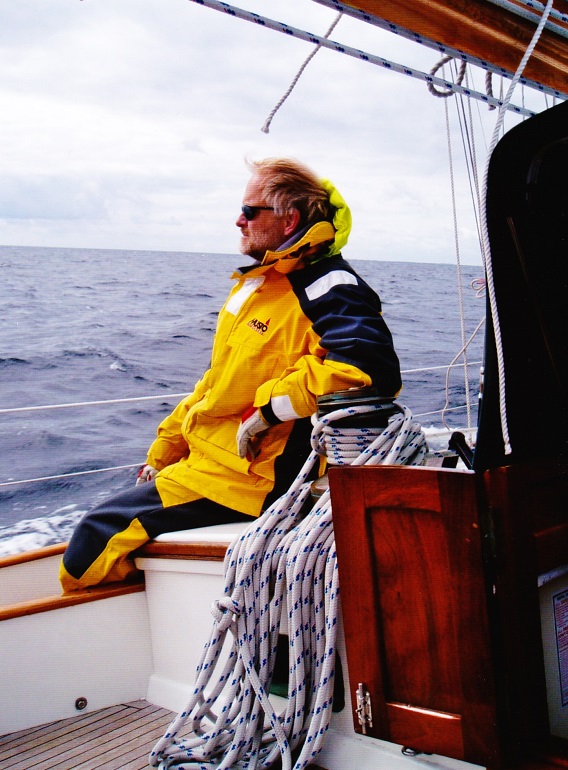
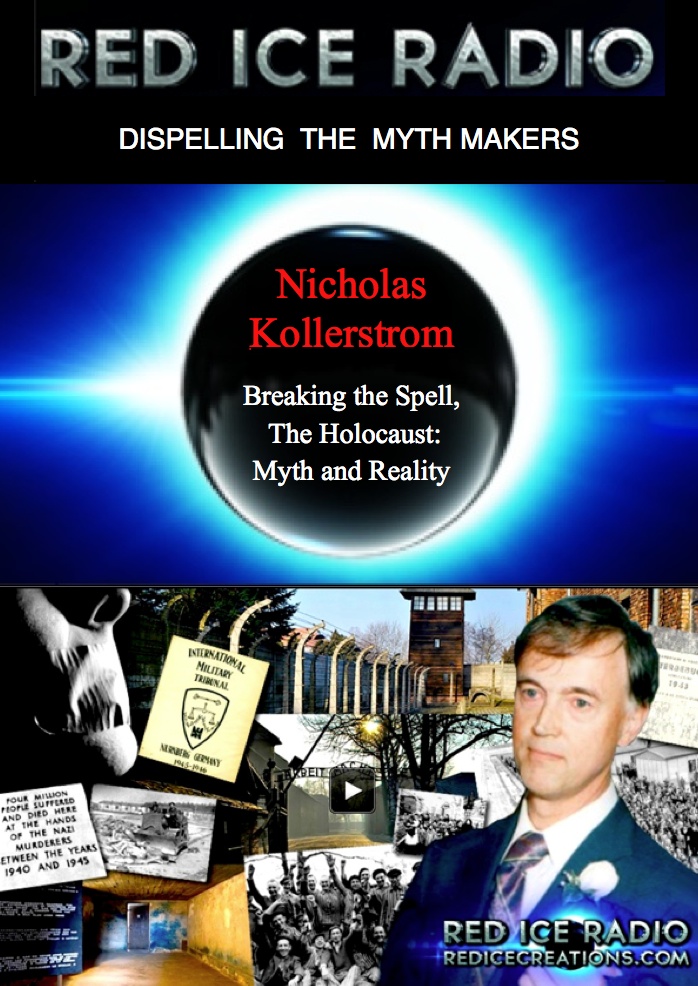
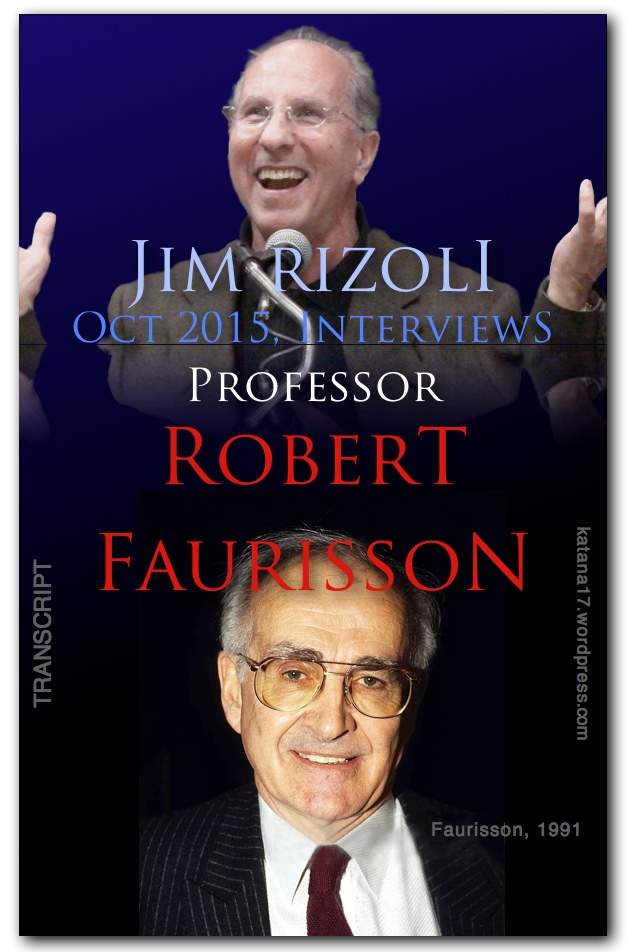
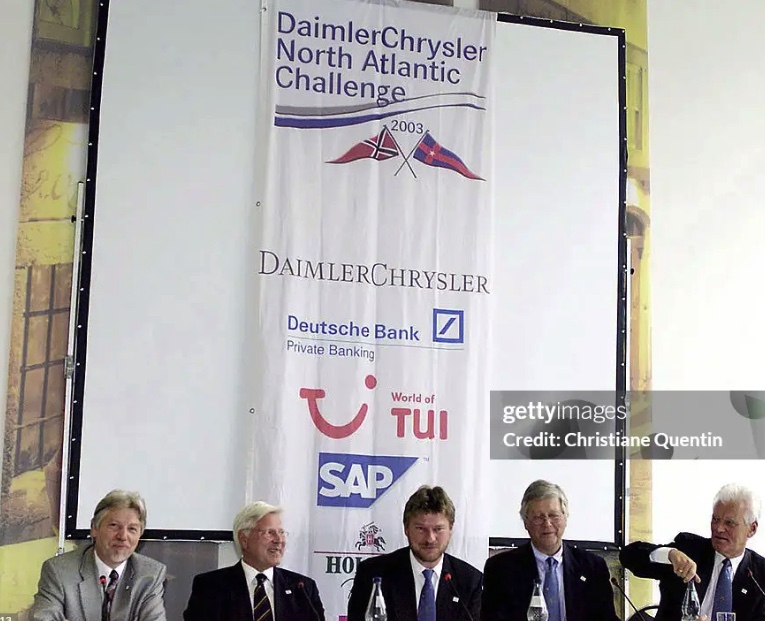
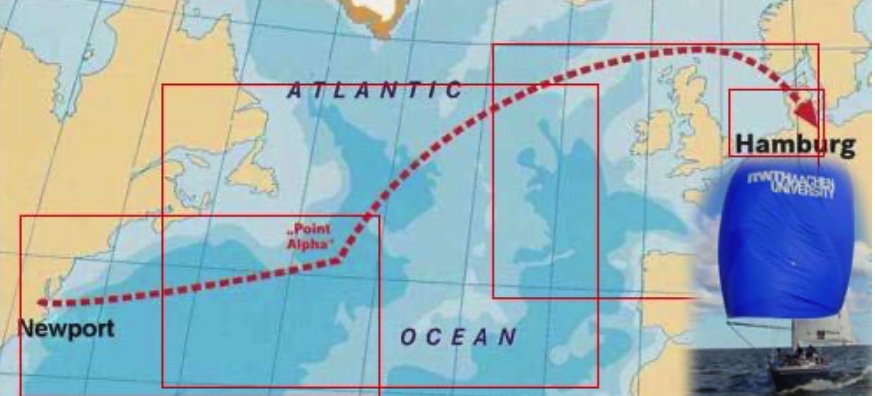
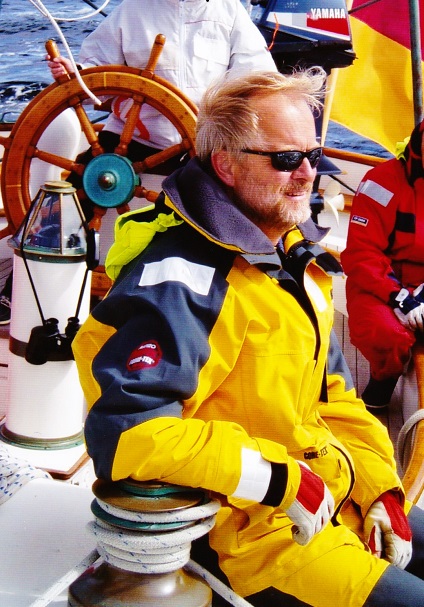
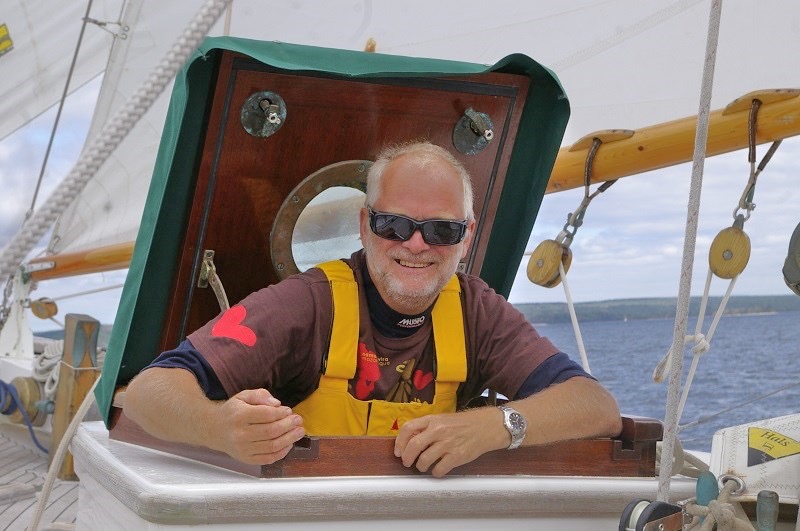




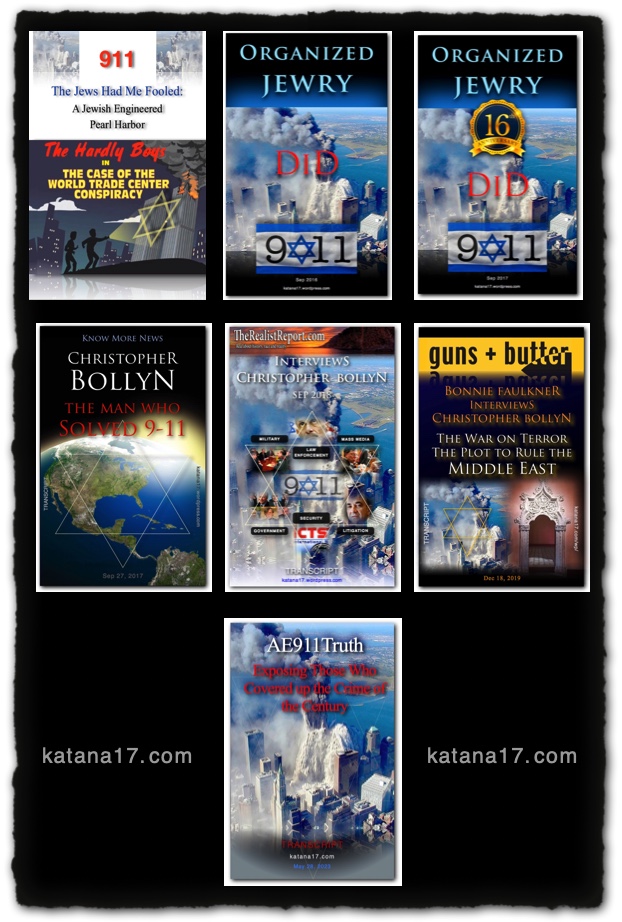
Pingback: The Flipside with Monika – Ep 03 with Paul Fromm – Jul 13, 2024 – Transcript | katana17
Pingback: The Flipside with Monika – Ep 08 with Alfred Schaefer – Aug 17, 2024 – Transcript | katana17
Pingback: Joel Davis – Fuck off We’re Full – with Tom and Jacob – Oct 24, 2024 – Transcript | katana17
Pingback: Monika Schaefer – The Flipside with Monika – Ep 1 – Intro – Jun 29, 2024 – Transcript | katana17
Pingback: The Flipside with Monika – Ep 18 with Jürgen Neumann – Nov 2, 2024 – Transcript | katana17
Pingback: The Flipside with Monika – Ep 20 with Kathleen Dudley – Nov 16, 2024 – Transcript | katana17
Pingback: The Flipside with Monika – Ep 27 – Germar Rudolf – Jan 18, 2025 – Transcript | katana17
Pingback: Joel Davis – The Self-Imploding Legitimacy of Our Opposition, Why Are They So Afraid? – Feb 14, 2025 – Transcript | katana17
Pingback: Monika Schaefer – The Flipside with Monika – Ep 24 – Prof Tony Hall – Dec 21, 2024 – Transcript | katana17
Pingback: The Flipside with Monika – Ep 36 with Jürgen Neumann on Ernst Zundel – Mar 22, 2025 – Transcript | katana17